Chinese NGO |
European NGO |
| Environmental Scientific Society of Sichuan Province ESSSP, China, Test | Franco-Chinese Association for Urban Sustainable Development AFCDUD, France |
| Chongqing Renewable Energy Society, CRES, China | EKOenergy, Finnish Association for Nature Conservation, Finland |
| The Green Volunteer League of Chongqing, China | Legambiente, Italy |
| BlueRibbon Ocean Conservation Association, China | Focus Association for Sustainable Development, Slovenia |
| China Youth Climate Action Network, China | BUNDjugend Berlin, Germany |
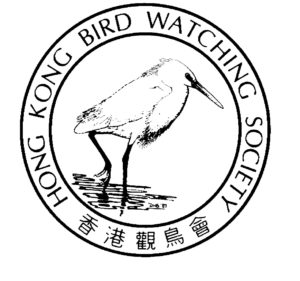 |
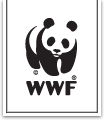 |
Environmental Scientific Society of Sichuan Province (ESSSP), ChinaThe Hong Kong Bird Watching Society (HKBWS) was founded in 1957. It is concerned about the appreciation and conservation of birds and their habitats and is one of the oldest membership-based-nongovernmental organizations in Hong Kong. For nearly 60 years, HKBWS has been promoting bird watching and carrying out educational activities, surveys and research; HKBWS also plays a leading role in regional bird monitoring initiatives such as coordinating the International Black-faced Spoonbill Census and helping to coordinate the China Coastal Waterbird Census. It also works closely with local bird watching societies and government agencies for the conservation of several highly threatened bird species in mainland China. |
WWF, Wadden Sea Office, GermanyThe WWF Wadden Sea Office is actively involved in the Trilateral Cooperation on the Protection of the Wadden Sea, is experienced in trans-boundary and cross-sectoral cooperation – among others within the framework of Interreg projects – and represents the nature NGO-sector in various international Wadden Sea World Heritage working groups. The office building in Husum hosts a National Park Visitor Centre and is shared by several NGOs, one of which – Schutzstation Wattenmeer – is the largest regional Wadden Sea conservation NGO and a cooperation partner of WWF. |
Exchange Topic: Environmental education and awareness raising as a critical factor for long term conservation of coastal wetlandsThe exchange, with a special focus on coastal birds, will provide insight into approaches of bird-related activities and rescources thus contributing to awareness raising and conservation both in the Wadden Sea and Hong Kong/China. The final report can be found here. |
|
 |
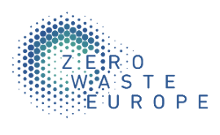 |
Eco Canton, GuangzhouEco Canton is a non-profit non-enterprise environmental organization, which is focusing on household waste, waste classification and management, formally registered in 2012. We are also one of the initial institution of China Zero Waste Alliance. Eco Canton has cooperated with the government, enterprises, communities and other environmental organizations successfully to explore and practice a sustainable solution to address the waste crisis. We are pushing the government to implement the relevant waste policies through policy advocacy, raising public awareness and participation in solving the city waste problem. Our vision is “A future of zero waste; an era of green citizens; a livable and ecofriendly Canton”. |
Zero Waste Europe, BelgiumZero Waste Europe’s mission is to empower communities and change agents from around Europe to redesign their relationship with rescources, adapt their lifestyle, consumption patterns and engage with the circular community. Zero Waste Europe is both a knowledge network with more than 20 groups in 15 countries across Europe, and an advocacy group, representing active communities in countries across the EU. The organization supports local groups with independent knowledge and steamlined tools to drive change more efficiently, structure the movement internationally to better reprensent the interests of our communities across the EU and engage policy makers with a unified voice. Zero Waste Europe wants to re-design our society so that all superfluous waste is emiliminated and everything that is produced can be re-used, repaired composted or recycled back into the system. |
Exchange Topic: Waste managementWaste management – Spreading the understanding that waste is only the tip of the iceberg of a number of environmental and social issues. Therefore work on waste issues means as well working on climate change, food waste, air pollution, plastic pollution and other critical subtopics for both organizations. The final report can be found here. |
|
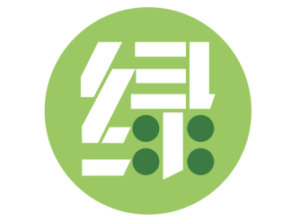 |
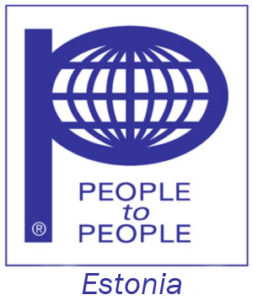 |
Greenovation Hub, Guangzhou
|
Esti People to People, Estonia
|
Exchange Topic: Exploring public participation in the fair sharing of clean water and water consumptionThe organizations focus on their mutual interest in using workshops and activities for awareness rising on water issues and try to engage in a mutually beneficial cooperation in designing promotionary activities. The final report can be found here. |
|
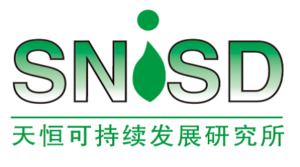 |
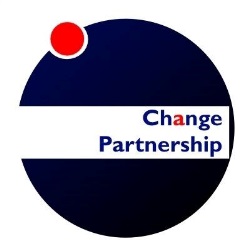 |
South-Nord Institute for Sustainable SNISD, BeijingThe South-North Institute for Sustainable Development (SNISD), founded 1998, is a Chinese non-profit think & do tank with its mission to promote environmental protection and sustainable development in China and the Asia Pacific region, through international exchanges and cooperation. Over the past two decades focusing on clean energy, climate change, low-carbon and protected areas, as well as local community development and etc. SNISD has been strongly committed to addressing issues of public and government concerns through science-based and cross-sectoral approaches and in a collaborative manner. |
Change Partnership, BelgiumChange Partnership is a not-for-profit think tank and activist organisation seeking to solve the political difficulties surrounding the climate change topic and to facilitate the transition to a clean, secure as well as prosperous world. Change Partnership creates innovative policy and political solutions as well as organising decision-makers in governments, business and civil society to ensure real change is achieved. |
Exchange Topic: “One Belt, One Road” (OBOR) initiative and climate changeThis project is vital to connecting China and Europe and it will represent the cornerstone of future cooperations between the two regions in the next decades. Both exchange partners believe that their shared focus and expertise on clean energy, climate change and low-carbon technologies would represent a solid basis for a meaningful cooperation in analyzing impacts and opportunities in the implementation of the OBOR projects. The final report can be found here. |
|
 |
 |
Evergreen Center for Sustainable Development, BeijingEvergreen Center for Sustainable Development (Evergreen) is a non-governmental organization that actively practices and promotes sustainable development while focusing on the healthy development of children. Furthermore, Evergreen’s areas of work include sustainable development education, research and international exchange. |
Youth Included, Czech RepublicYouth Included is a non-governmental organization, functioning as an open-space for young people who want to know more about people and cultures, learn new things and share their skills, inspire and be inspired. Youth Included believes that the youth is the key to building the future, therefore we all should give them the tools for education, raise their awareness in regards to the dangers of xenophobia and discrimination, show them the diversity of the World and point out the positive effects of intercultural interactions. |
Exchange Topic: Inclusion of migrants in environmental protection and educationBoth China and Czechia face many environmental challenges. Pollution (air, water, and land pollution) and energy shortages are threatening the sustainability of communities. Both countries experienced a raise in population in the recent years. In China, migrant workers move from underdeveloped rural areas to cities, while in Czechia international migrants are settling to find a new home. The exchange partner’s aim is to explore how they can share their practices and environmental work with these groups. The final report can be found here. |
|
 |
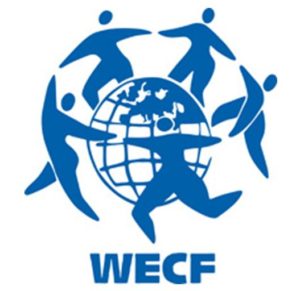 |
Green Women, ShanghaiGreen Women is a grassroots NGO in Shanghai, which was established in June, 2010. Women’s participation has been the unique label of the NGO. Through a series of low carbon community programs, including the collection and reuse of plastic waste, environmental protection, small garden development and so on. Green Women has attracted more and more family members to build ecological communities. Since 2010, we have organized over 240 environmental activities with no less than eighty thousand participants, and achieved domestic waste source reduction of more than 81 tons. |
WECF e.V. Women Engage for a Common Future, Germany
|
Exchange Topic: Developing gender-sensitive activities around safe energy and sustainable developmentExperience exchange on management, organization and needed skills of environmental NGO’s in Europe and China; exploring and developing gender-sensitive business model for steering citizen’s towards decentralized, renewable and safe energy. WECF and Green Women are interested in establishing a platform to transfer and share knowledge and experience between China and Europe. They plan to organize activities and projects around low carbon and sustainable development. The final report can be found here. |
|
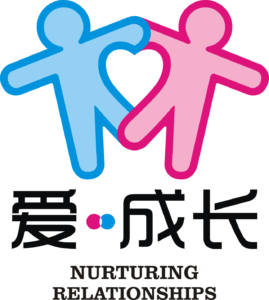 |
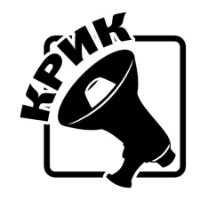 |
Guangzhou Yuexiu District Nurturing Relationship Education Support Centre NRC, GuangzhouGuangzhou Yuexiu District Nurturing Relationship Education Support Center (NRC) was founded in 2009 and registered as a NGO in 2015. They are a non-profit organization dedicated to the simple notion that all people are entitled to have the information and skills needed to be sexually healthy adults. NRC provides parents classes, student classes, consultations and professional trainings. |
Center for Youth Activism CYA KRIK, MacedoniaCentre for youth activism KRIK is non-governmental, non-profit organization established by young people, led by young people and it works for and with young people. The translation of the word KRIK is SCREECH/OUTCRY and the inspiration for it came out of the vision of this organization, which is to be the voice of the youth that will be heard and will make changes and contributions to society. KRIK strives to encourage greater youth participation, youth activism, and hopes that young people can be more included in the policy making process on local and national level. |
Exchange Topic: Disability, gender and sexualityThe significance of the topic providing direct support to people and children with disabilities and continue advocacy towards decision makers and service providers to better fulfill the needs of people with disabilities.
|
|



